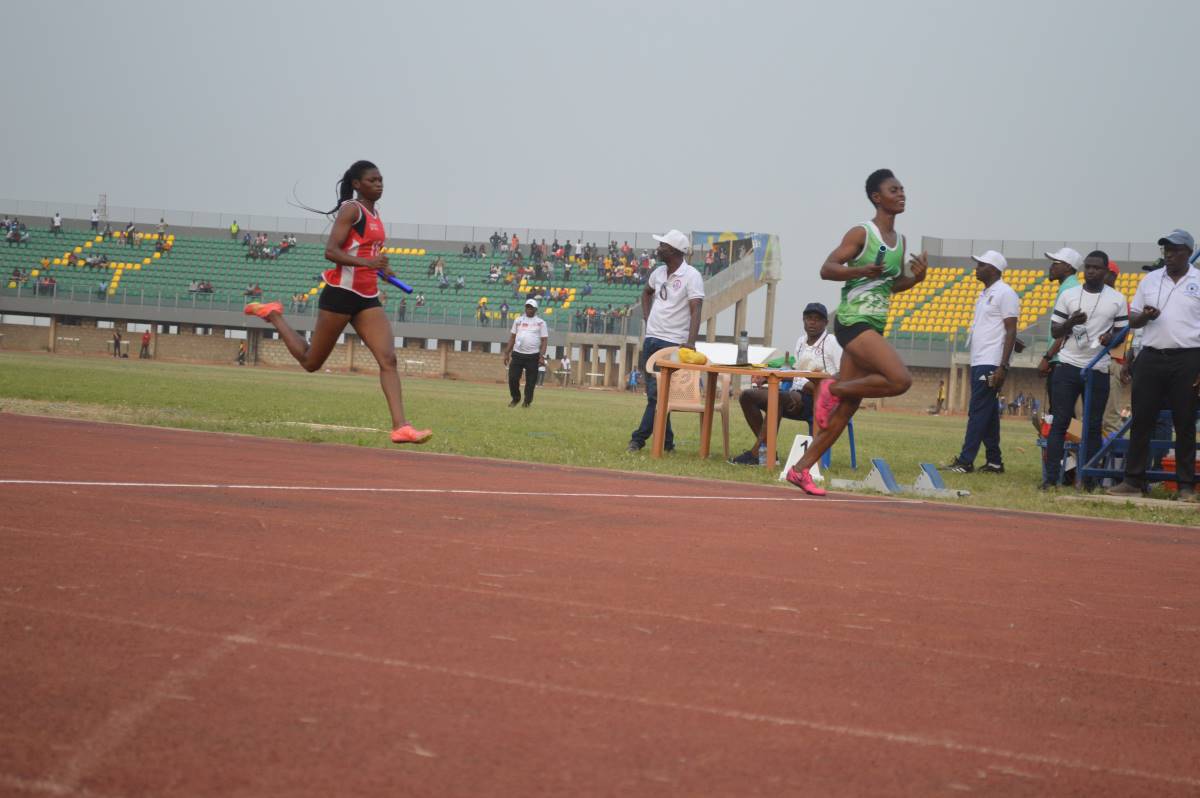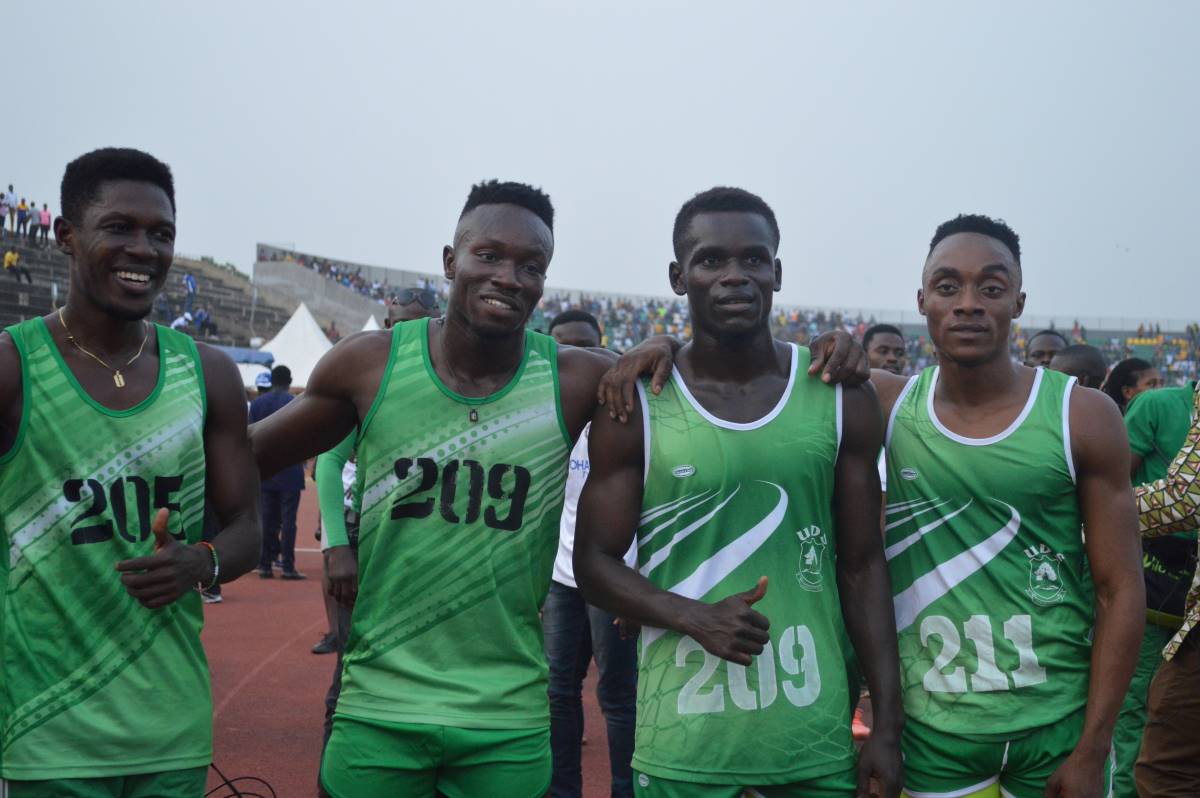It was a day for new records at the ongoing Ghana Universities Sports Association (GUSA) Games as the University of Development Studies (UDS) set new records in the men’s and women’s 4×100 metre races.
UDS presented strong competitors for both races and that proved to be the decisive factor as they beat the University of Ghana (UG), University of Cape Coast (UCC) and University of Education.
Ladies’ 4x100m race
The started with Rafiatu Nuhu and they were anchored by Kate Agyeman to give the UDS team the gold medal.

In the process, they made a time of 45.946 seconds to beat the previous record of 46.62 seconds set by the University of Ghana in 2017.
Final positions and time
University of Development Studies – 45.946 seconds
University of Cape Coast – 46.304 seconds
University of Ghana – 48.004 seconds
Kwame Nkrumah University of Science and Technology – 49.942 seconds.
University of Education, Winneba – 49.312 seconds
Men’s 4×100 race
Wallace Aflammah, Sarfo Ansah, Derrick Sarkodie and Barnabas Aggeh were too strong for their opponents in the 4×100 metres.
UDS won the race in a time of 40.27 seconds with the University of Ghana and UCC coming second and third respectively.

Final positions and time
University of Development Studies – 40.279 seconds
University of Ghana – 40.321 seconds
University of Cape Coast – 40.635 seconds
Kwame Nkrumah University of Science and Technology – 40.957 seconds.
University of Education, Winneba – 41.253 seconds
University of Professional Studies – 45.469 seconds
Credit: citisportsonline

Comments
Post a Comment